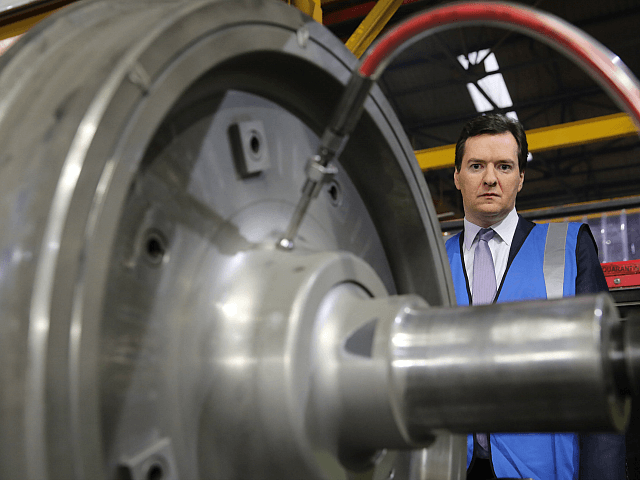Britain’s small- and medium-sized manufacturers are increasing their output at their fastest pace for seven years, as analysts predict that growth will accelerate from its present “trough” in the years before Brexit.
The Confederation of British Industry (CBI) quarterly Small and Medium Enterprise (SME) trends survey also shows employment up, hiring intentions strong, investment intentions above average, and export order growth at its highest since April 2011.
“It’s encouraging that activity among SME manufacturers has risen strongly over the past three months. Firms are clearly in an exporting sweet spot, able to exploit the competitiveness gains from a low exchange rate and a firm global backdrop,” noted Confederation of British Industry (CBI) Principal Economist Alpesh Paleja — although, with the CBI being a staunchly Europhile (and partly EU-funded) body, he could not resist highlighting the supposed importance of EU trade and a large supply of foreign labour to continued success.
Meanwhile, Britain’s oldest independent economic research institute, the National Institute of Economic and Social Research (NIESR), says it expects overall economic growth to rise to 0.4 per cent in the third and fourth quarters of 2017, rising to 0.5 per cent early next year.
All in all, their researchers believe UK growth in 2017 will be 1.7 per cent, increasing to 1.9 per cent in 2018, and 2 per cent in 2019 — when the country’s formal departure from the European Union is expected to take place.
“The economy has slowed each year since 2014,” the think tank notes in a press release, “[but] according to our forecast, 2017 will mark the trough for GDP growth.
“Thereafter, we envisage a modest recovery that takes economic growth to a level that is close to potential.”
Remain campaigners seized on reports issued by the George Osborne-led Treasury during Britain’s referendum on EU membership to claim that “a vote to leave would represent an immediate and profound shock to our economy [which] would push our economy into a recession and lead to an increase in unemployment of around 500,000”.
These forecasts proved bogus, with Britain posting the second-strongest growth in the G7 in 2016, and unemployment hitting a 43-year low in May 2017 — but reduced growth in the early months of 2017 was seized on as evidence that the country was becoming “the sick man of Europe” after all.
If the NIESR forecasts prove accurate, the already strained economic credibility of EU loyalists and establishment forecasters can only suffer further damage.

COMMENTS
Please let us know if you're having issues with commenting.